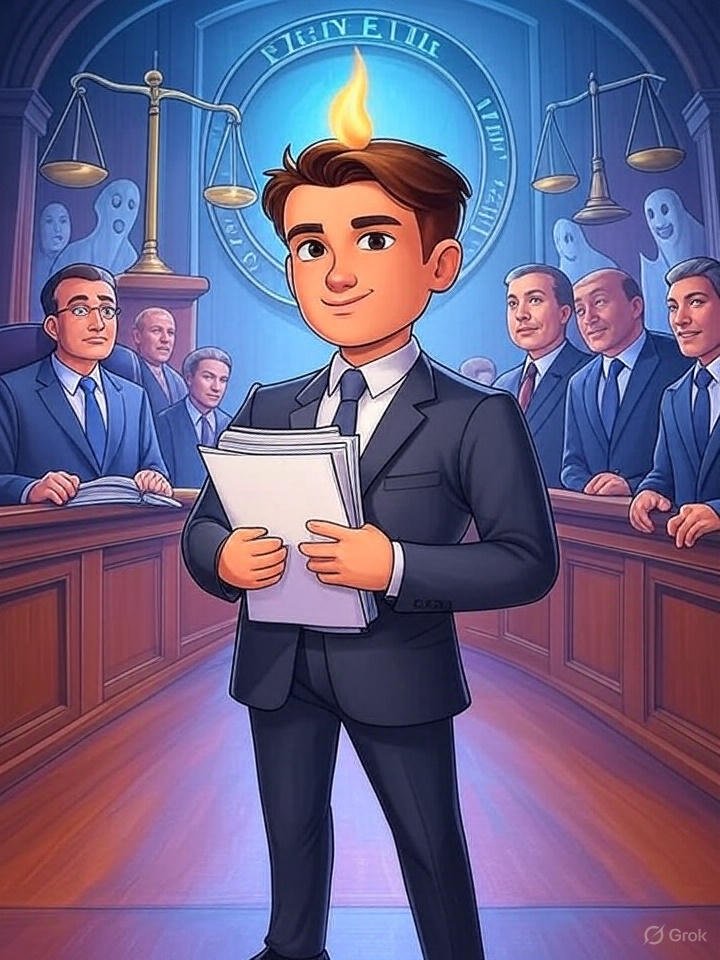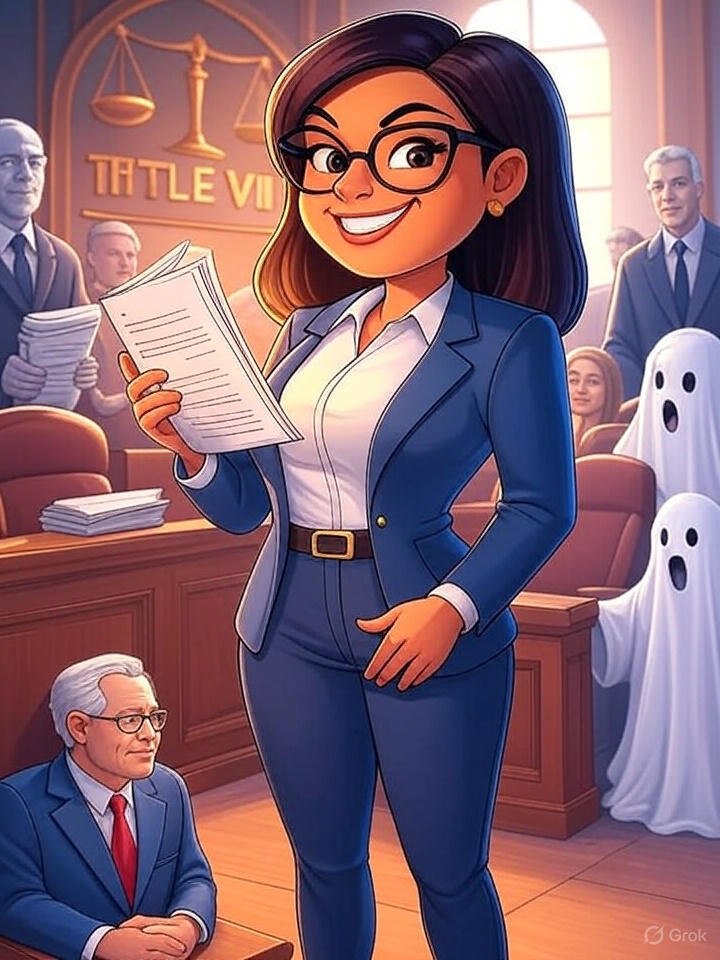
Author: @greywarden100
Date: July 3, 2025
Disclaimer: This post shares general information about workplace rights under Title VII and pro se litigation, based on my experience as a pro se litigant. It does not discuss details of any ongoing legal case or provide legal advice.
As a pro se litigant fighting for my workplace rights without a lawyer, I’ve learned the power of Title VII of the Civil Rights Act of 1964. This law protects workers from religious discrimination and retaliation, ensuring you can practice your faith without losing your job. During the COVID-19 pandemic, some employers used coercive tactics to limit these rights, but Title VII—and the success of other pro se litigants—shows you can fight back. Here’s what the law says and how self-represented workers have won big.
Title VII: Your Right to Negotiate Fair Accommodations
Title VII requires employers to accommodate your sincerely held religious beliefs unless it causes a “substantial burden” on their business (Groff v. DeJoy, 2023). This means a real partnership, called the “interactive process,” where you and your employer work together to resolve conflicts between workplace rules and your faith (EEOC v. Abercrombie & Fitch Stores, Inc., 2015).
Suppose your faith clashes with a health policy, like a medical procedure. If the employer’s alternative—like regular testing—still doesn’t work, you can reject it for religious or non-religious reasons, like health concerns. The Supreme Court in Ansonia Board of Education v. Philbrook (1986) backs this: rejecting an accommodation, even for non-religious reasons, is part of the negotiation. Your employer must keep exploring options, not force compliance. For example, if testing raises safety worries or violates your beliefs, you can suggest alternatives like different safety measures, and they must consider them in good faith.
Coercive Tactics During COVID-19
During the pandemic, some employers, especially in healthcare, acted like you needed their “approval” to follow your faith. They’d offer exemptions from one rule, like a vaccine mandate, but impose conditions, like testing, that still conflicted with beliefs. Non-compliance often led to threats of discipline or firing. This broke federal law. Title VII requires accommodations to resolve religious conflicts, not create new ones (Ansonia, 1986). The EEOC’s COVID-19 guidance (29 C.F.R. § 1630.2(r)) says employers can’t mandate measures like testing without proving you pose a “significant risk” to others. Blanket policies punishing non-compliance without this evidence are coercive and illegal. Employees deserve a fair chance to propose solutions, not a take-it-or-leave-it demand.
Fighting Retaliation
Title VII also protects against retaliation. If you request an accommodation or file an EEOC complaint, your employer can’t punish you with discipline or termination (Burlington Northern & Santa Fe Railway Co. v. White, 2006). If penalties follow your efforts to assert your rights, that’s a red flag. The law ensures you can stand up without fear.
Pro Se Success Stories
Pro se litigants—people representing themselves—can win big, proving anyone can fight for justice. Clarence Gideon, in a landmark 1963 case, won a Supreme Court ruling that guaranteed legal counsel for criminal defendants, all without a lawyer (Gideon v. Wainwright, 372 U.S. 335). Robert Kearns, inventor of the intermittent windshield wiper, won over $10 million against Ford for patent infringement as a pro se plaintiff. Dr. Julio Perez secured about $5 million in a federal jury trial for wrongful termination after whistleblowing, also pro se (Perez v. Progenics Pharmaceuticals, S.D.N.Y. 2010). These victories show that with determination and research, self-represented workers can triumph, even against big opponents.
My Pro Se Journey
Navigating court without a lawyer is tough but empowering. Studying Title VII and cases like Groff has shown me employees have a voice. Learning legal rules and crafting arguments is challenging, but every step forward is a win for fairness. My fight inspires others to know their rights and demand respect for their beliefs.
Why This Matters
Workplace fairness is about dignity. Title VII ensures you can negotiate accommodations and reject unfair solutions without sacrificing your job. Check out eeoc.gov for guidance. If you’re facing a workplace challenge, know that pro se victories like Gideon’s and Kearns’ prove you can make a difference.
What does workplace fairness mean to you? Have you faced pressure to compromise your beliefs?
